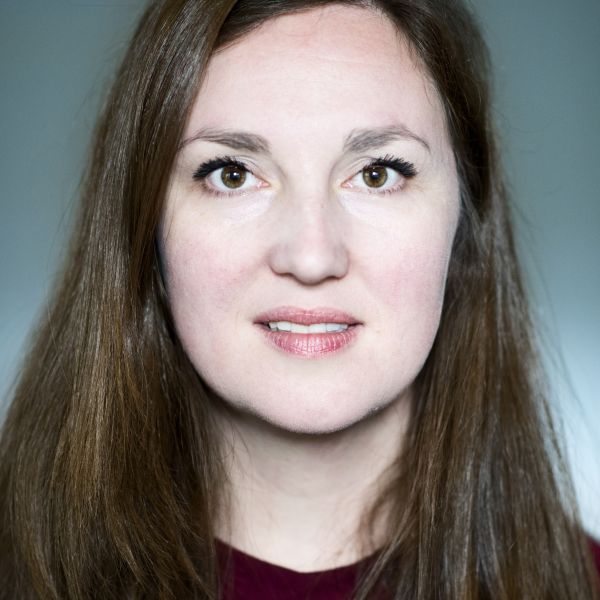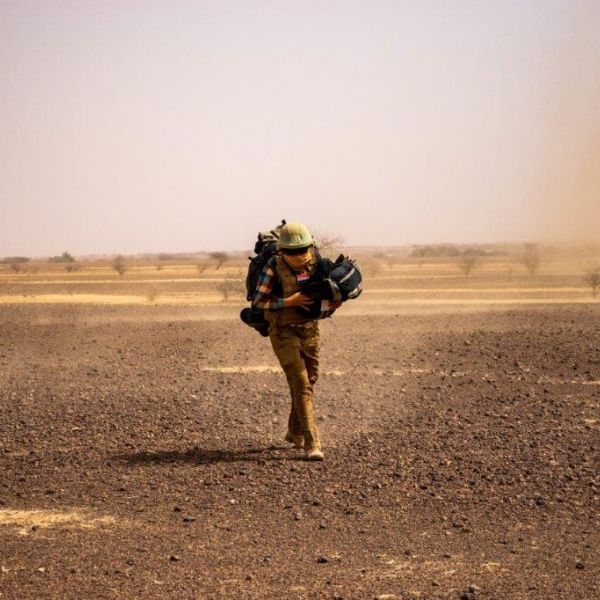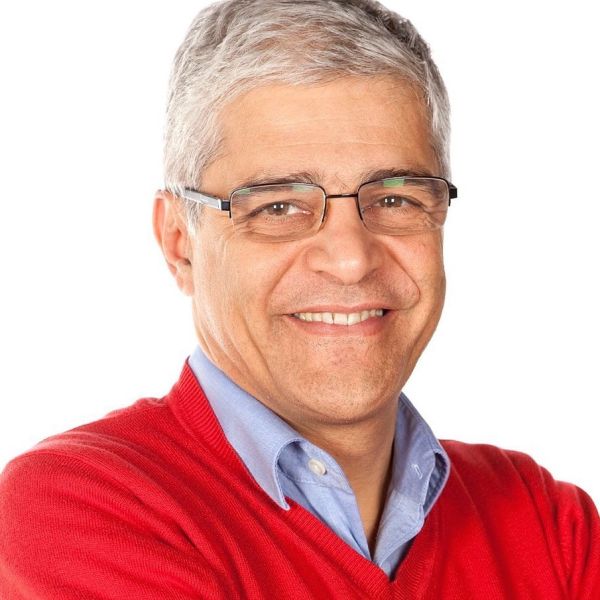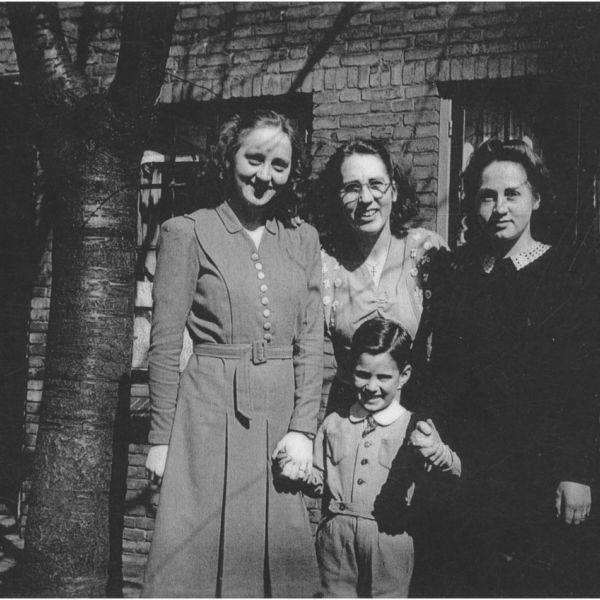75 years of UN in 75 stories: Krista van den Berg
In 2016, Krista van den Berg (1978) was working for UNICEF Nigeria. While she was there, Gerida Birukila, one of her Nigerian colleagues, made an unforgettable impression on her. Krista now works as a freelance film-maker for various charitable groups.
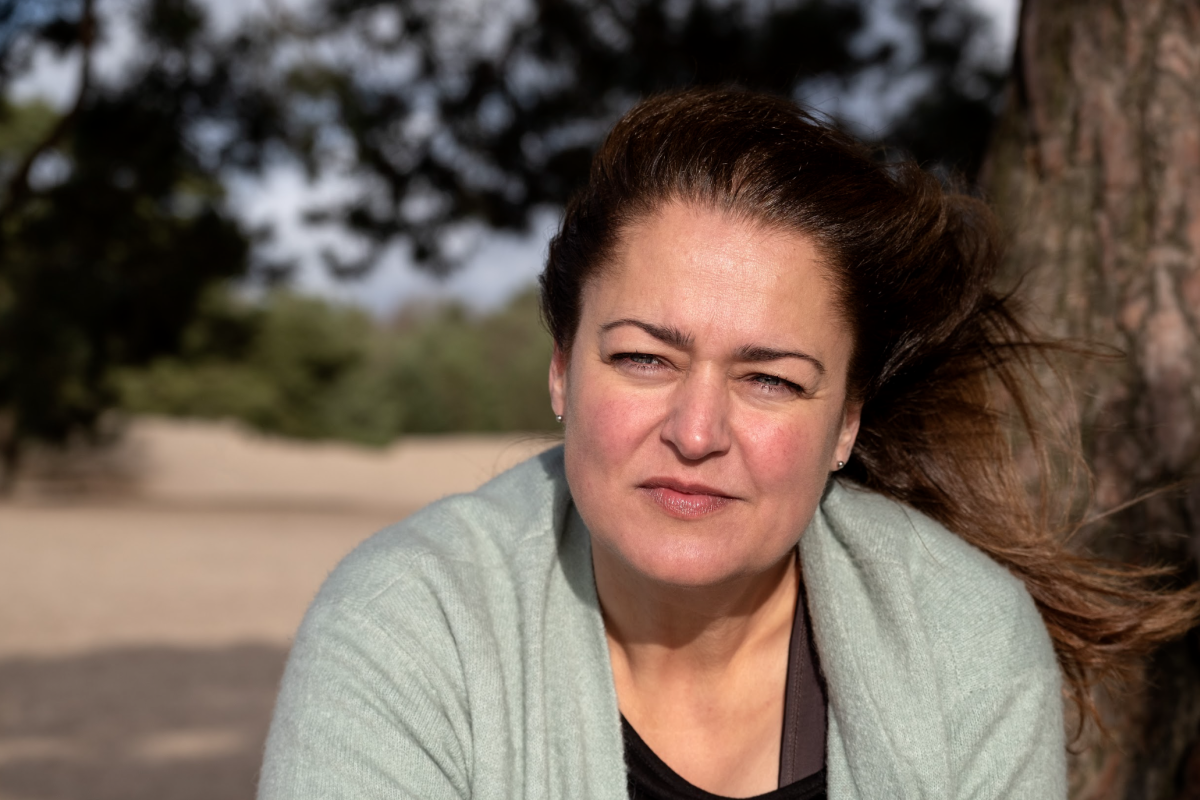
200 years ago, Nigeria was a caliphate ruled by a sultan. It was a land with a rich Islamic culture. Under British colonial rule in the twentieth century, sharia law gradually gave way to modern legislation, Western education and Christianity. But not without sowing the seeds of unrest and division.
Oil revenues paved the way for widespread corruption and enriched a small elite. When sharia law returned, it was initially assumed that it would offer a solution, but that also failed to stamp out corruption. The country became a breeding ground for the rise of a new generation of hard-line Muslims calling for revolution against the West. As the 21st century dawned, Boko Haram developed into a radical group increasingly turning to violence to spread its extremist ideology.
“Gerida went the extra mile as a human being, not as a UN aid worker”
Calls for sanctions and UN intervention grew, reaching a crescendo in 2014 when the group kidnapped hundreds of young girls at a boarding school. The UN High Commissioner for Human Rights called upon the international community to put an end to Boko Haram’s campaign of violence and terror, which had by that point forced aid organisations to temporarily discontinue their humanitarian relief efforts in the country for fear of attacks by Boko Haram.
In 2017, the UN Security Council adopted a resolution calling for support in the fight against this terrorist organisation.

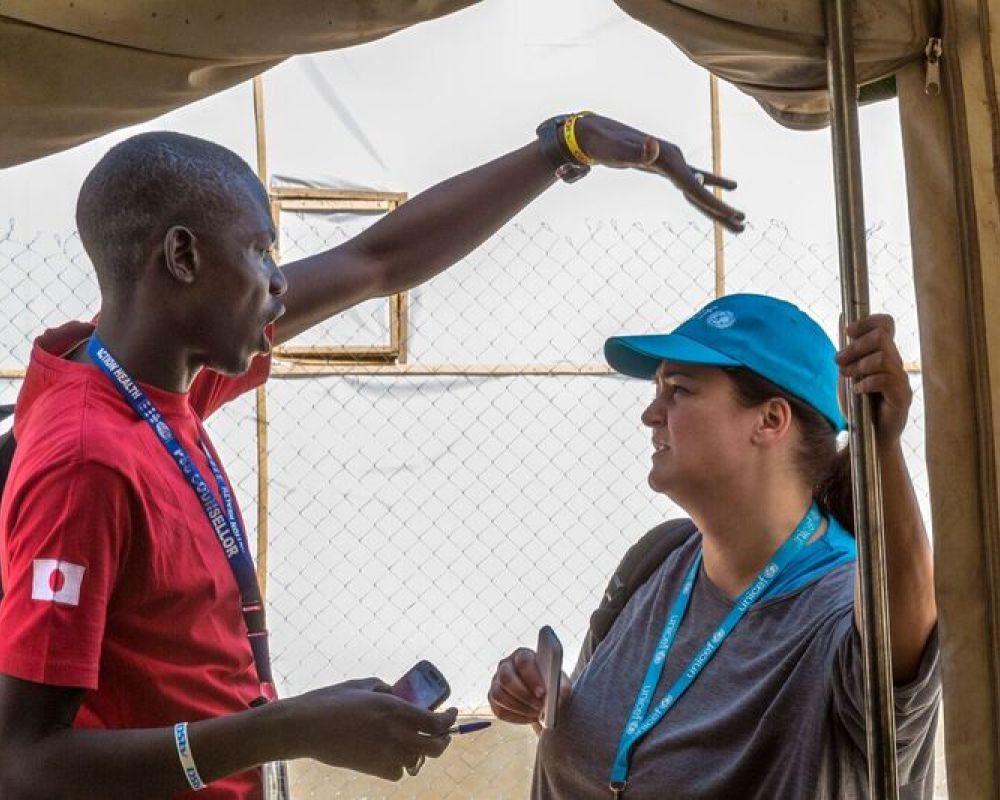
“It was Christmas day, and all of us aid workers had to stay in the hotel. The chance of an attack was even higher than usual on a Christian holiday. I had just arrived in Nigeria, where Boko Haram’s attacks and terror campaign had left deep scars. At that point, the noise of the explosions from the attacks at night didn’t even startle me awake me any longer. It was the strangest Christmas I’ve ever had. I was standing in the courtyard of the hotel looking at the lone white plastic Christmas tree. Suddenly my colleague Gerida came running in. She had gone out, all on her own, to a group of refugees who had by necessity had to settle just outside the camp. She had bought them clothes, food and drink, all with her own money, and distributed it there. It just touched me so much; for me, it was the true spirit of Christmas.
“She had bought them clothes, food and drink, all with her own money, and distributed it there”
On a different occasion, I really failed in that department, when I was in Nigeria recording videos for a donation drive back at home in the Netherlands. We only had one day to shoot the footage and everything was very tight. We went to a camp where food was being distributed. A woman came walking past us, old and nearly blind, walking with a stick, and she held out her hand to us. I asked to the aid workers if she was going to get food later. They said that she would. So we went on filming. When we were walking back, she fell over into a shallow ditch full of brackish water, right in front of us. She was covered in this foul water; it was the most dehumanising thing I had ever seen. Obviously I had misjudged the situation. I should have stopped recording to make sure she got help right away. I’m not proud of what I failed to do that day.
There is only one place on earth where nearly all the nations of the world sit around the table: the United Nations. The UN focuses on issues that transcend the borders of countries or even affect the entire world, such as peace and security, climate change, education, health, cultural heritage, economic development, and more. To many, the work of the UN seems very abstract, but by engaging with rescue workers, peacekeepers, aid workers, diplomats, eyewitnesses, soldiers, and others involved with the UN, it becomes clear how important the work of this organization is. This is exactly what Humanity House has done. Unfortunately, this organization had to close its doors, but Just Peace and Museon-Omniversum have teamed up to preserve their stories. You can now find these stories on Just Peace's website, and some of them are also included in an exhibition about the UN at Museon-Omniversum.
The 75 Years of UN Stories were collected and curated by Frederiek Biemans for Humanity House.


